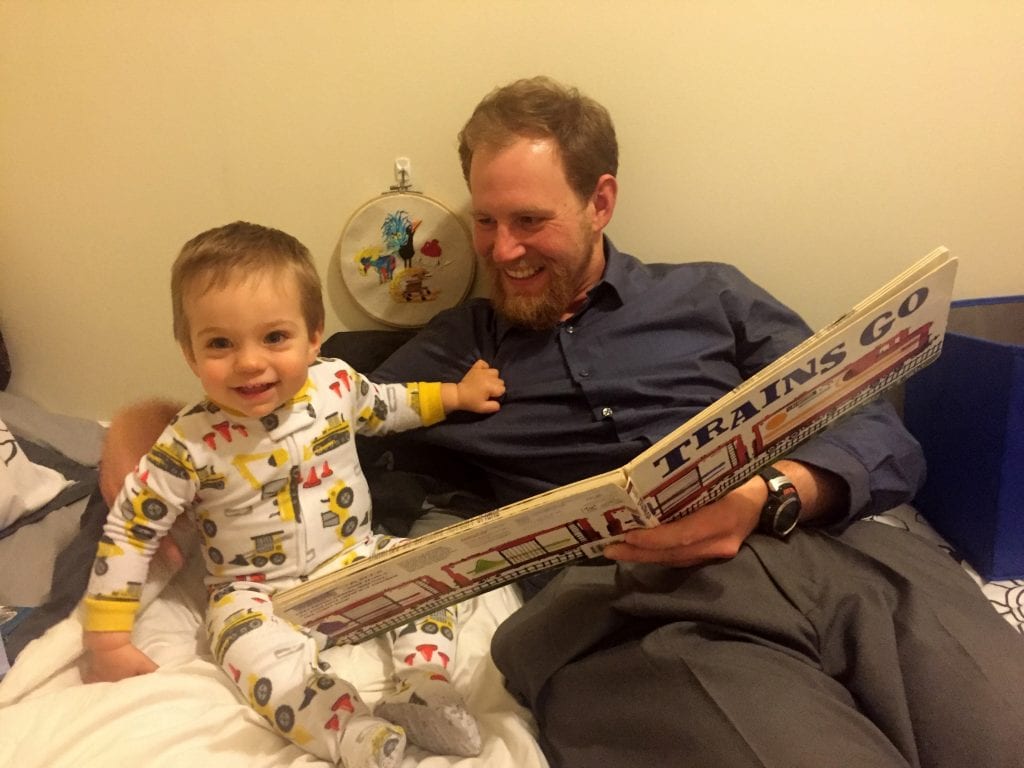They’re called the terrible twos for a reason. Besides acting out, being energetic, toilet training, and just being an everyday hassle to raise, toddlers present another challenge: sleep regression. At this age, toddlers are finding it harder to fall asleep. As their need for a nap decreases, their sleep schedule goes all out of whack, leading to frustrated parents who want to fix it.
Luckily, there are some tips to be able to train your toddler much faster. Let’s take a look at a few of them.

Study Sleep Regression
You may wonder what sleep regression is. It’s all too common. Between 18 months and two years, your toddler tends to go through a sleep regression. This is a common occurrence. There are many reasons for this.
One reason is that toddlers need less sleep than newborns, so their naptime may be less needed and may mess with their sleep schedule, waking them up in the middle of the night.
Another reason is because of the rebellion. A toddler begins to grow a little more independent and realizes that they don’t necessarily have to go to sleep. They may be having so much fun playing, they don’t want to go to sleep. They don’t quite realize the value of sleep just yet, so you must teach them how to sleep.
Sleep regression can be frustrating for many parents. Dealing with an infant that woke up in the middle of the night, screaming was terrible enough. Now, you’re dealing with a toddler who wakes up or refuses to go to bed.

The Importance Of A Sleep Ritual
Sleep rituals, or bedtime routines, are essential for people of all ages. They allow someone to wind down and get tired. If one goes to bed all wound up, chances are, they will have a harder time falling asleep.
An hour or so before bed, get your toddler away from the TV or other screens. Then, begin the ritual. Give them a nice, warm bath. Read a story to them. Sing to them. Say words that are associated with sleep to the toddler. Dress them up in PJs.
A sleep ritual is the perfect unwinding tool, and it can make beddy-bye time much more comfortable. Sleep training two-year-olds might be entire of a challenge considering the amount of energy they have.

Establish Some Boundaries
Boundaries are always important. Having a set of rules to follow, and enforcing them is still a good thing. If your toddler refuses to sleep, be firm, and don’t let them break any rules. For waking up in the middle of the night, have a plan ready to lull them to sleep easier.
With that said, don’t get too angry or impatient. Sleep regression is normal, and the toddler isn’t doing it to make you angry. A sleep schedule of a toddler is odd, and it takes a little bit to fix it and be on your way. Establishing clear rules are handy in sleep training two-year-olds.
Review Your Toddler’s Naps
When your toddler gets older, their nap schedule starts changing. They may need fewer naps, and if your toddler is napping too late, it can take longer for them to fall asleep at night, or make it more likely they’ll wake up in the middle of the night. You may want to make the bedtime later, or the naptime earlier. Also, time the naps. They may be going on for too long. You never know how much of an art napping us until you have a toddler. It’ll make you want a nap after you’re done figuring it out.
Reward Your Toddler
Many parents will take the negative reinforcement route, punishing their toddlers for breaking the boundaries. However, you have to understand that many toddlers react better if you reward them. You could give them a gold star for doing a good job. If they keep the nap up, maybe you can buy them a toy.

Food Can Help
There have been mixed results when it comes to eating food before bed. Some people fall asleep easier if they got a little food in their tummy before bedtime. Others may stay awake. For a toddler, a little snack before bedtime may help them fall asleep much easier. Give them a snack, brush their teeth, and see if it works. While you shouldn’t overfeed them, a little bit of food may be able to help.
Keep Calm
We can’t stress this enough. As a parent, it’s sometimes hard to keep calm. We keep forgetting that our toddler isn’t exactly reasonable, and we may be frustrated over the fact that they’re just not going to bed. Plus, you may be a little sleep deprived yourself, so you don’t have the patience of Job. What you should do is keep calm, cool, and collected, and be patient if they don’t go to bed. Showing anger is a sign of weakness, and plus, it may rub off on your toddler. Anger begets anger. This almost sounds like a Yoda philosophy, but it’s true.
Consistency Is Key
Consistency is always important when it comes to sleep training your toddlers. If you go a little bit out of line, it can be a slippery slope. If you give in once, you’ll keep giving in. Establish the boundaries early, don’t make them budge at all, and don’t make them budge even if you feel like doing it once or twice isn’t a bad thing. It’s one slope you don’t want to slide down with.

Don’t Hit Yourself Too Hard
Sleep training your child isn’t going to be flawless all the way through. There are going to be some days when the toddler pushes the rules a little. Or some days where they seem to be getting the hang of it, only to mess up when you think you’re at the finish line.
You mustn’t beat yourself up too much should you mess up. Sleep training 2 year olds is a challenge for other parents as well. Instead, make sure that you stick to the routine. Eventually, your child will grow out of it and get a good night’s rest at a consistent time.
FAQs On Sleep Training 2 Year Olds
Last Updated on January 31, 2023 by Rejie Salazar
DISCLAIMER (IMPORTANT): This information (including all text, images, audio, or other formats on FamilyHype.com) is not intended to be a substitute for informed professional advice, diagnosis, endorsement or treatment. You should not take any action or avoid taking action without consulting a qualified professional. Always seek the advice of your physician or other qualified health provider with any questions about medical conditions. Do not disregard professional medical advice or delay seeking advice or treatment because of something you have read here a FamilyHype.com.